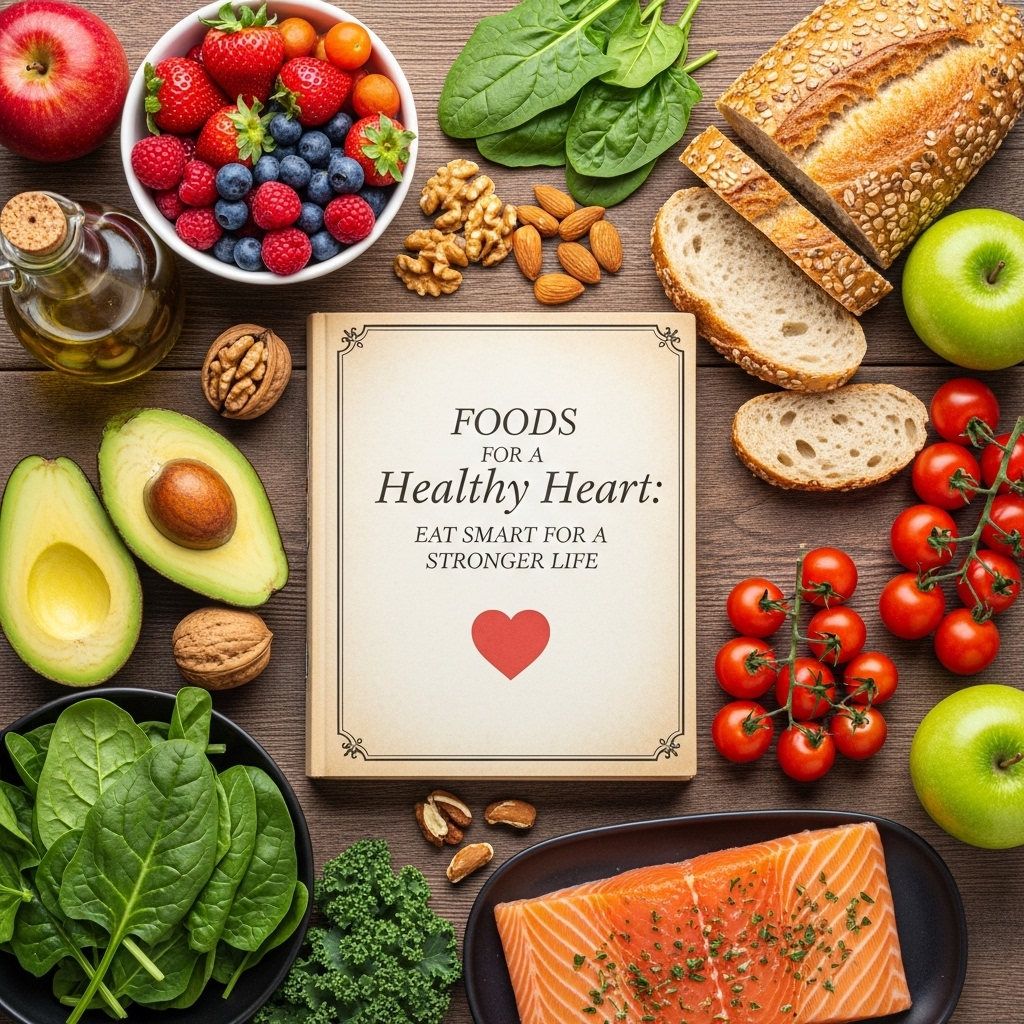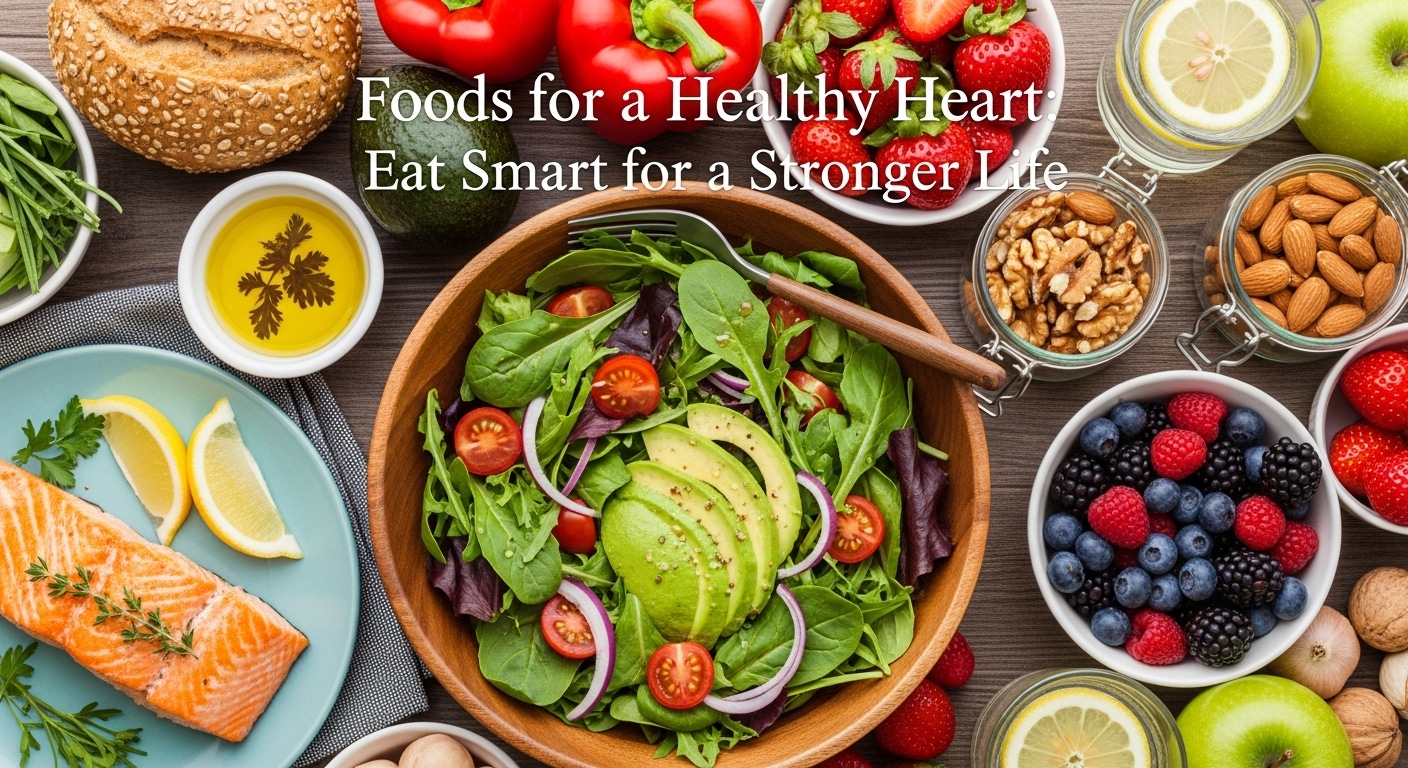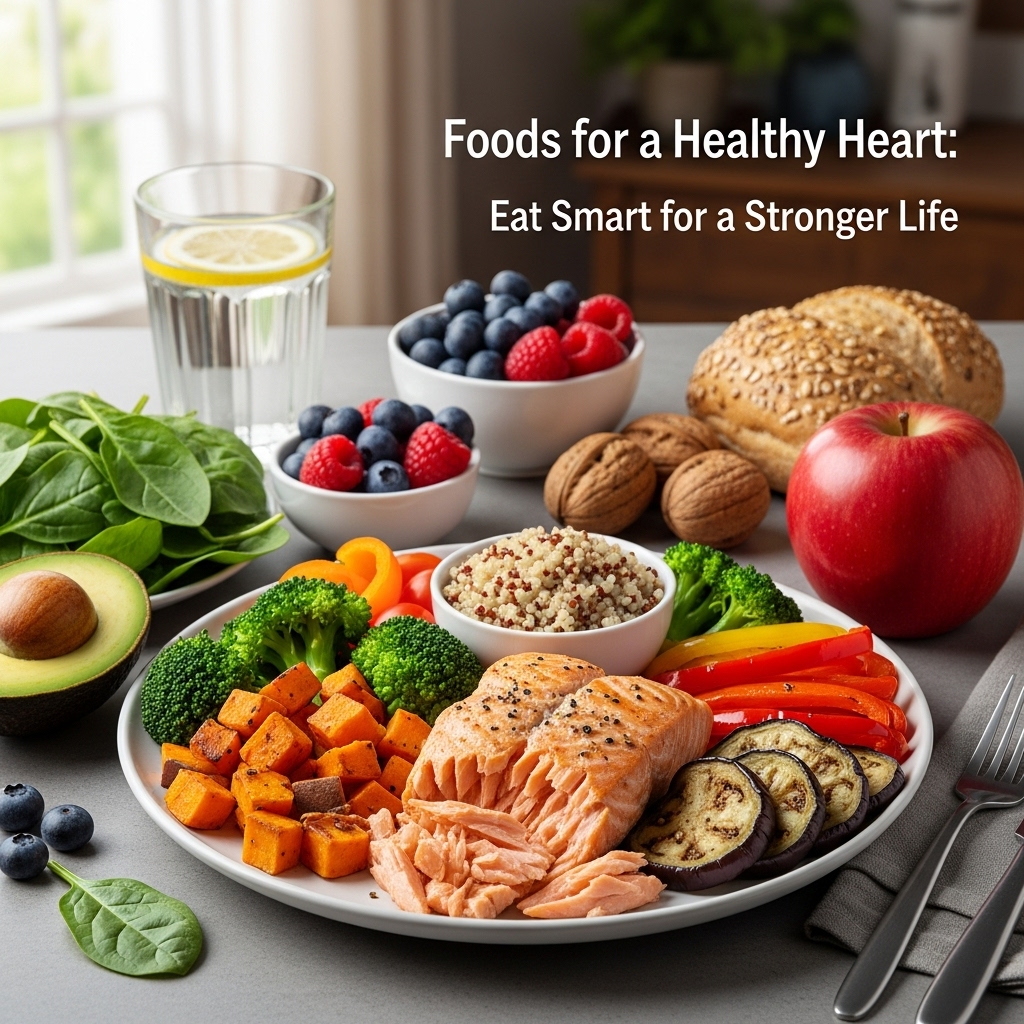
Your heart works tirelessly every second of your life — pumping blood, delivering oxygen, and keeping you alive. The best way to care for it? Through the food you eat. A heart-healthy diet can lower your risk of heart disease, improve circulation, and maintain healthy blood pressure and cholesterol levels.
Let’s explore the best foods for heart health, the nutrients behind them, and the daily habits that keep your heart beating strong.
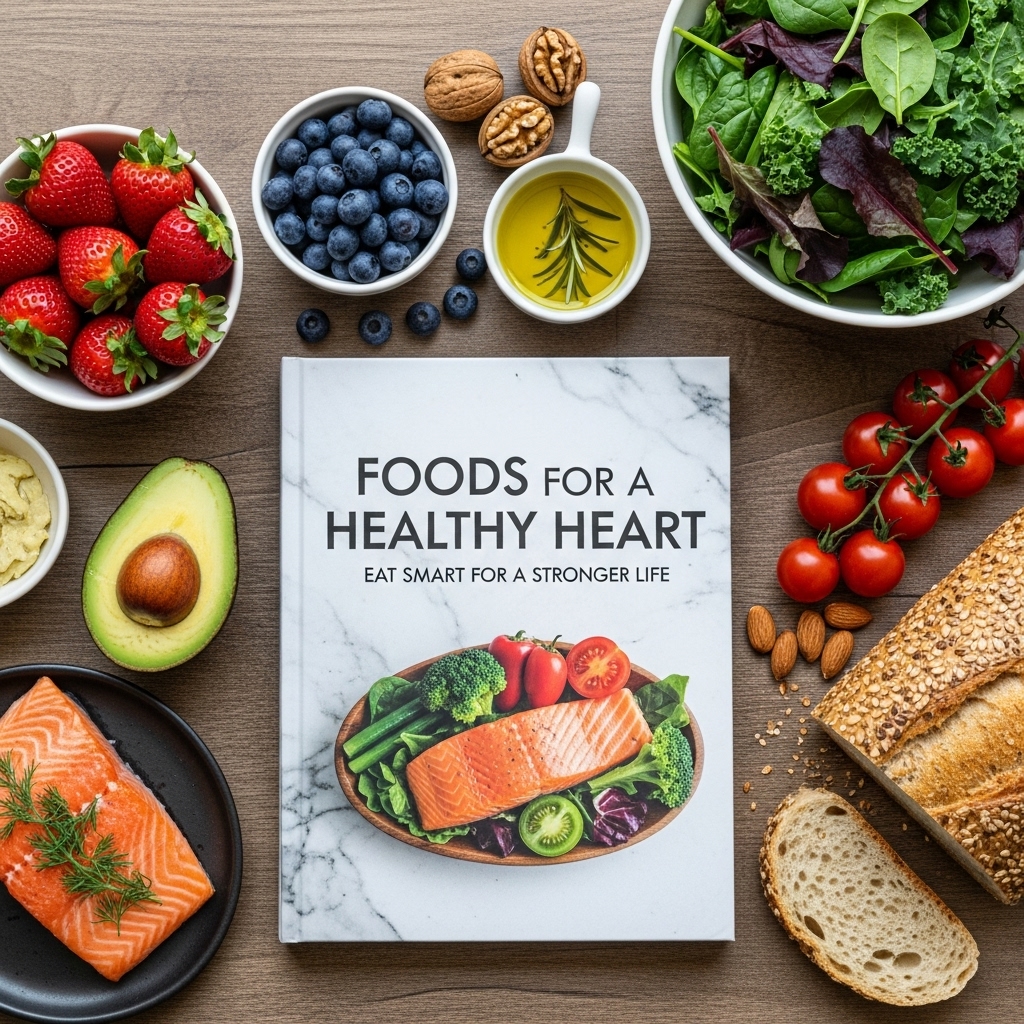
1. Why Nutrition Matters for Your Heart
Poor diet is one of the leading causes of cardiovascular disease. Excess salt, sugar, and saturated fat can clog arteries and increase blood pressure. On the other hand, eating foods rich in fiber, antioxidants, and healthy fats helps prevent damage and keeps the cardiovascular system in balance.
A heart-smart plate should be filled with colorful fruits, whole grains, lean proteins, and healthy oils — not just to prevent disease, but to help you feel more energetic every day.
2. Essential Nutrients for Heart Health
-
Omega-3 Fatty Acids: Reduce inflammation and lower triglyceride levels.
-
Found in: salmon, mackerel, sardines, chia seeds, and flaxseeds.
-
-
Fiber: Helps reduce cholesterol and regulate blood sugar.
-
Found in: oats, lentils, beans, apples, and whole grains.
-
-
Antioxidants (Vitamin C & E): Protect against oxidative stress and artery damage.
-
Found in: berries, citrus fruits, nuts, and seeds.
-
-
Potassium: Balances sodium levels and helps maintain normal blood pressure.
-
Found in: bananas, avocados, potatoes, and leafy greens.
-
-
Magnesium: Supports muscle function, including the heart muscle itself.
-
Found in: almonds, spinach, and dark chocolate.
-
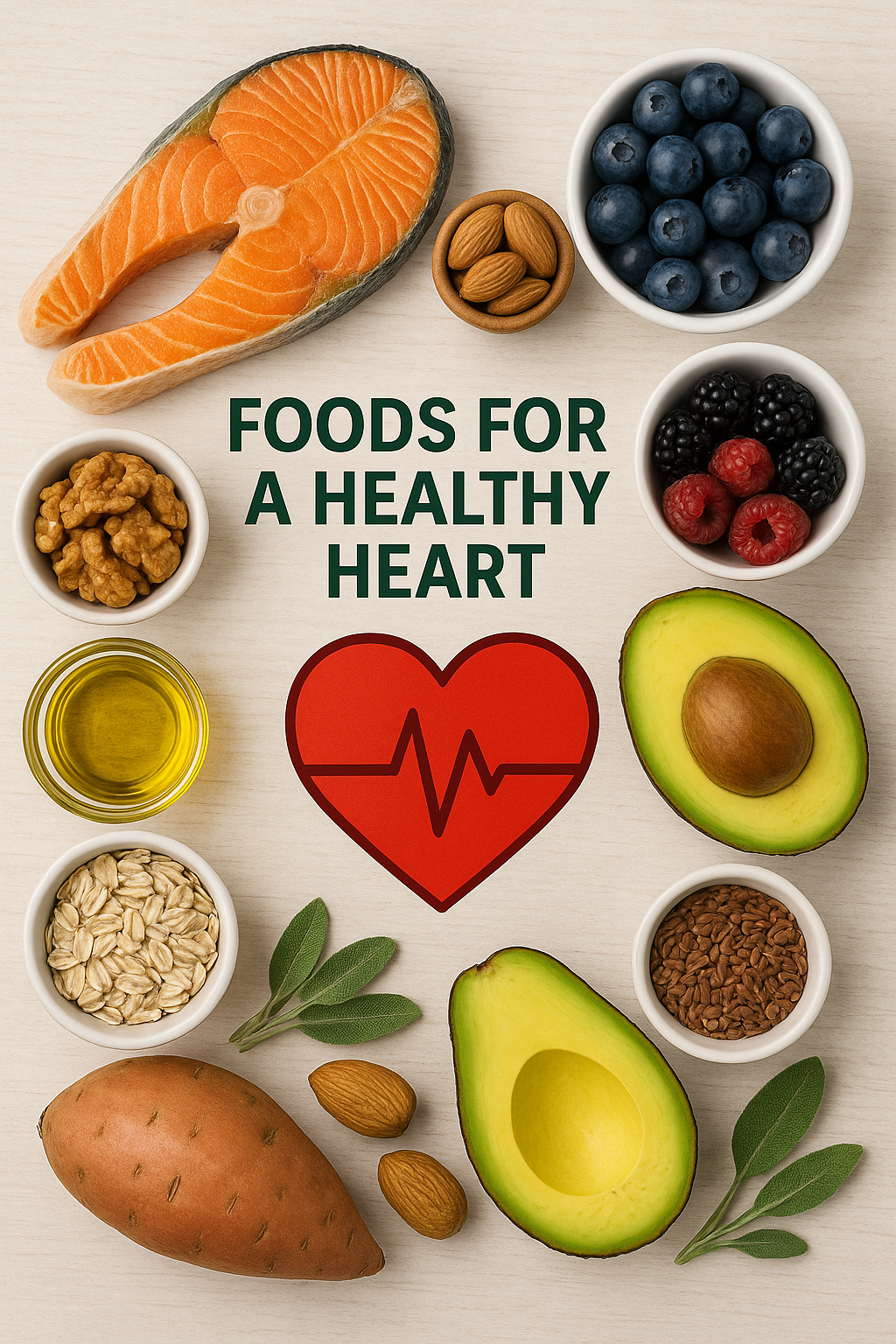
3. Top Heart-Healthy Foods
a. Fatty Fish
Fish such as salmon, sardines, and trout are rich in omega-3 fatty acids, which lower bad cholesterol (LDL) and reduce inflammation.
b. Oats and Whole Grains
Oats are packed with soluble fiber, which helps lower cholesterol levels. Whole grains like quinoa, barley, and brown rice also improve heart health and digestion.
c. Leafy Greens
Spinach, kale, and Swiss chard are loaded with potassium and antioxidants. These help control blood pressure and reduce arterial stiffness.
d. Berries
Blueberries, strawberries, and raspberries contain polyphenols that protect the blood vessels and reduce inflammation.
e. Nuts and Seeds
Almonds, walnuts, and chia seeds provide healthy fats, vitamin E, and fiber — all of which help reduce the risk of heart disease.
f. Olive Oil
A staple of the Mediterranean diet, olive oil is rich in monounsaturated fats that improve cholesterol and protect arteries.
g. Avocados
Creamy and nutrient-dense, avocados contain heart-healthy fats and potassium that regulate blood pressure.
h. Dark Chocolate
Rich in flavonoids, a small amount of dark chocolate (70% cocoa or higher) improves blood flow and reduces stress on the heart.
4. Foods to Limit or Avoid
To protect your heart:
-
Limit trans fats (found in fried and processed foods).
-
Reduce added sugars (sodas, sweets, pastries).
-
Keep salt intake under control.
-
Avoid excess red or processed meats.
-
Drink alcohol in moderation, if at all.
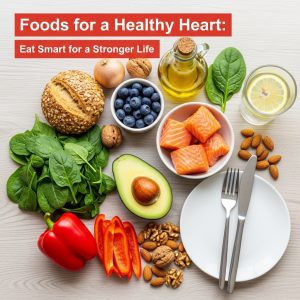
5. Lifestyle Habits for a Strong Heart
-
Exercise regularly: At least 30 minutes of moderate activity most days.
-
Stay hydrated: Water helps maintain circulation.
-
Sleep 7–8 hours per night: Rest reduces heart strain.
-
Manage stress: Meditation, deep breathing, or nature walks help lower blood pressure.
-
Avoid smoking: It narrows arteries and reduces oxygen flow.
6. The Bottom Line
A healthy heart isn’t built overnight — it’s nourished daily through consistent, mindful choices. Eat plenty of fiber, antioxidants, and healthy fats, and pair that with regular activity and stress management. Over time, these habits can add years of strength and vitality to your life.
